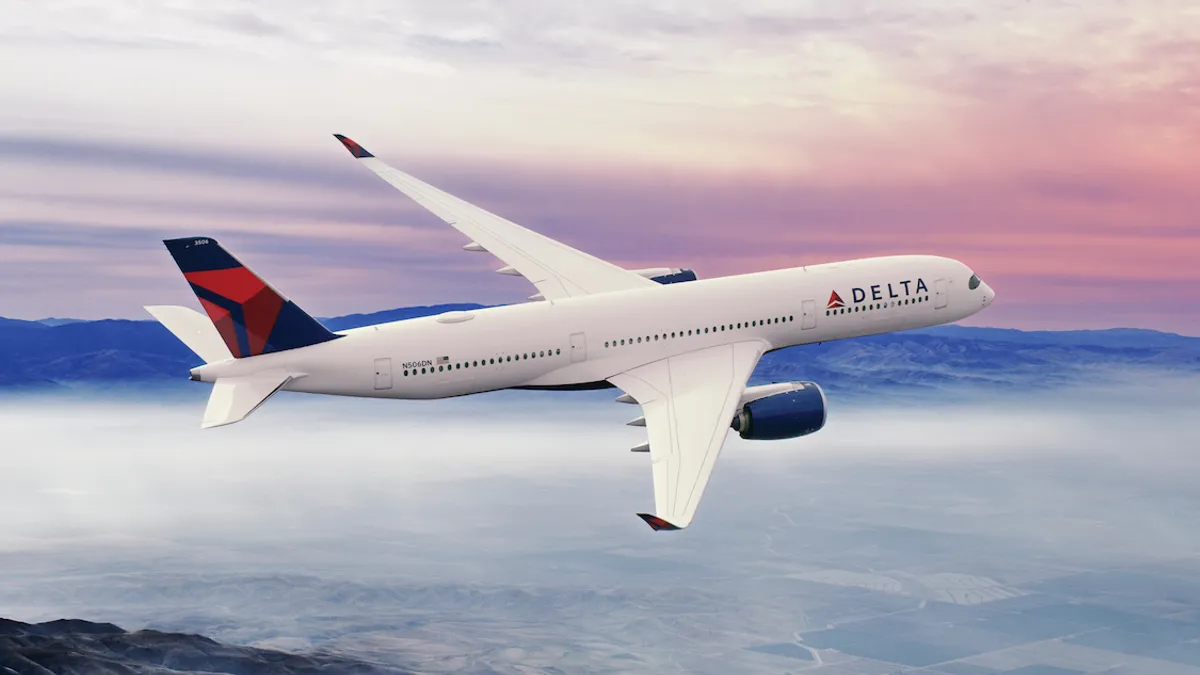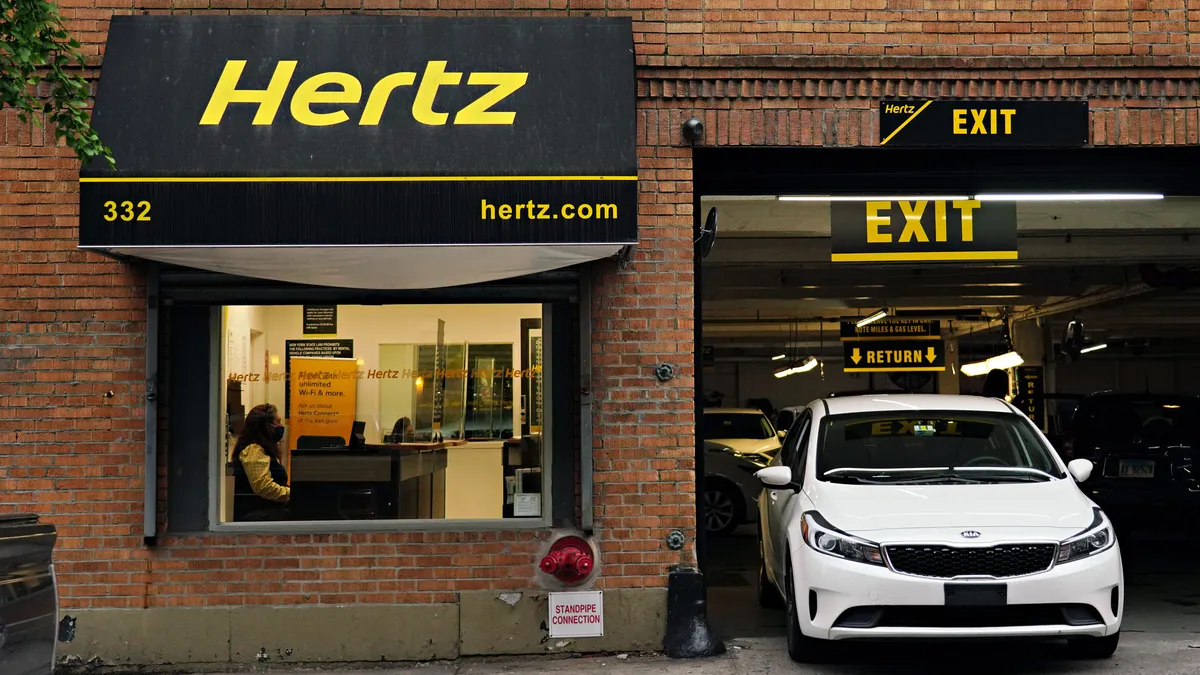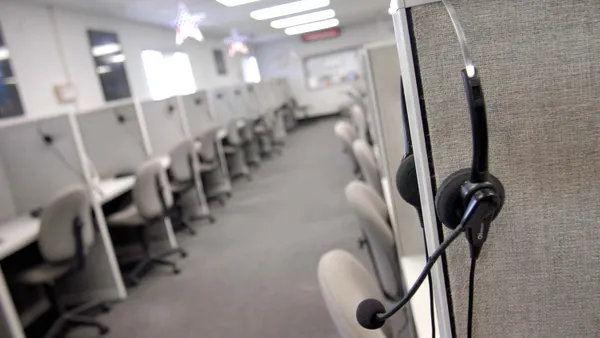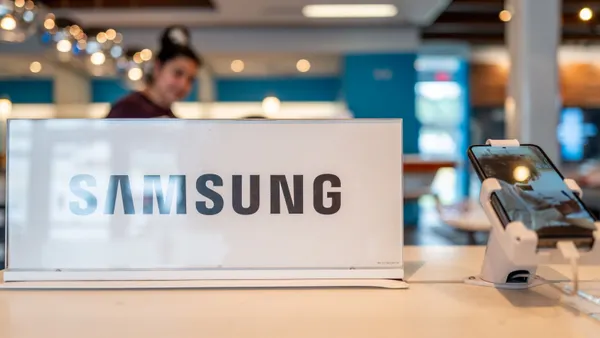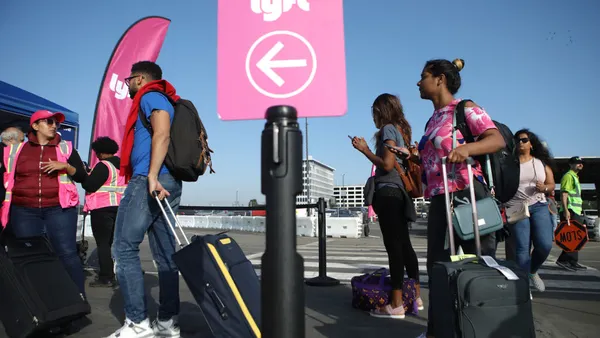Nearly 3 million people flew Sunday, according to the Transportation Security Administration, marking the peak of the busiest period of Thanksgiving air travel yet.
The record numbers of passengers put all eyes on airlines’ customer experience delivery, as passengers braced for a potential repeat of last year’s high-profile mishaps and travel nightmares.
But as Sunday drew to a close, it was apparent that airlines overwhelmingly delivered quality customer experiences to passengers.
Ben Mutzabaugh, senior aviation editor at The Points Guy, gave the airlines an A. “This Thanksgiving travel period went about as well as could be expected for holiday air travel,” he said in an email.
“I think [airlines] did exceptionally well considering that we did have some weather issues right in the middle of the Thanksgiving holiday,” said Ross Aimer, CEO of Aero Consulting Experts and a retired United Airlines pilot. “At Chicago O’Hare [International Airport], they had a snow storm, and from what I understand, only three flights were canceled out of literally thousands.”
Key to airlines' customer experience is on-time departures, Aimer explained. If one flight is delayed or canceled at a major airport that serves as hub-and-spoke, it has a cascading effect. If pilots and crew members are late or never make it to the next airport where they’re supposed to operate another flight, it can delay or cancel connecting flights.
To further complicate matters, federal aviation regulations prohibit pilots from flying more than a set number of hours in a day, which means that airlines must have pilots on reserve to avoid further cancellations and delays.
Sunday saw 55 flights into, around or out of the U.S. canceled, according to aviation-data service FlightAware. By comparison, one day in late December last year saw 2,500 flights canceled by Southwest alone. This Sunday, Southwest had just one cancellation, though it dealt with more than 1,400 delays, according to FlightAware.
“Delays were relatively few and cancellations even fewer, meaning most holiday travelers got to where they were going — and probably close to on schedule,” Mutzabaugh said. “With that, there were no ‘airline meltdowns’ or airline horror stories that went viral.”
Katy Nastro, a travel expert at Going, told CX Dive in an email that cancellation rates “haven't been this low since 2018.”
Vital to the airlines' success this year was staffing up. The pandemic caused Americans to fly less, leading airlines to furlough crew members, pilots and mechanics. Last year, as more people decided to travel, airlines weren’t ready.
“They were not able to recover from that setback as fast as they wanted,” Aimer said. “Rehiring personnel and training them takes a long time.”
“This year, they tried really hard to remedy this situation. They had plenty of personnel in place for the holidays,” Aimer said. “There was pressure on airlines to do better, and they did come through by having staff in place.”
Mutzabaugh agreed. “Airlines were as staffed up as they could be this year, stung by spotty performances last year and the realization that the [Department of Transportation] is taking a tougher stance on airlines who don’t live up to their customer service promises.”
With proper staffing, air traffic control and TSA doing their part to ensure timely arrivals and mostly benign weather, airlines were largely able to offer the customer service they promised.
“Airline operations were so solid across the board this week, it feels like a win all around,” Mutzabaugh said. “Even JetBlue, which has struggled with its operation, posted solid (if not spectacular) on-time numbers for the holiday period.”
Major airlines like United, American, and Delta “did an excellent job,” Aimer said.
Airlines’ success may be as much about what didn’t go wrong as what went right, Mutzabaugh said, “but this year’s rock-solid performance should probably be viewed as a customer-service win for all holiday travelers this Thanksgiving.”


